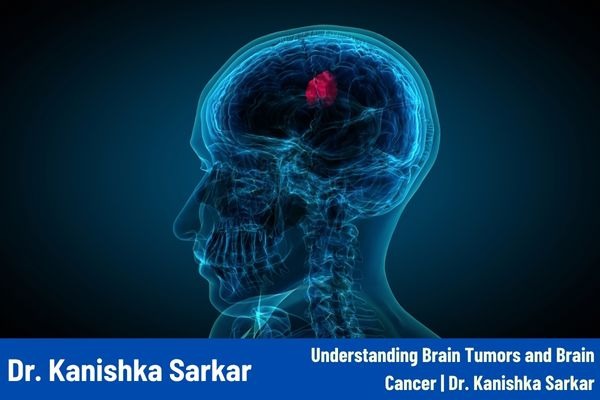Understanding Brain Tumors and Brain Cancer | Dr. Kanishka Sarkar
Learn about the causes, symptoms, diagnosis, and treatment options for brain tumors and brain cancer from Dr. Kanishka Sarkar, Consultant Clinical Oncologist. Early detection and advanced therapies can improve outcomes.
Dr. Kanishka Sarkar
10/15/20252 min read


Brain Tumours and Brain Cancer: Understanding the Difference and the Road to Recovery
By Dr. Kanishka Sarkar, Consultant Clinical Oncologist
When it comes to neurological health, brain tumours and brain cancer are among the most complex and challenging conditions. While the words “tumour” and “cancer” are often used interchangeably, not all brain tumours are cancerous. Understanding the difference, recognizing early symptoms, and seeking timely medical attention can make a crucial difference in patient outcomes.
What Is a Brain Tumour?
A brain tumour is an abnormal growth of cells in the brain or surrounding tissues. These can be:
Benign (non-cancerous) – slow-growing and usually localized.
Malignant (cancerous) – aggressive and capable of spreading to nearby tissues.
Brain tumours can either originate in the brain (primary) or spread from other parts of the body (secondary or metastatic brain cancer).
Common Symptoms
Early symptoms can vary depending on the tumour’s size and location, but common signs include:
Persistent headaches (especially in the morning)
Nausea and vomiting
Blurred or double vision
Seizures
Difficulty with balance or coordination
Changes in speech, memory, or behaviour
If you experience any of these symptoms persistently, it’s essential to consult a clinical oncologist or neurologist for further evaluation.
Diagnosis and Evaluation
Accurate diagnosis is the cornerstone of effective treatment. Diagnostic steps typically include:
MRI or CT scan to visualize brain structures
Biopsy to determine tumour type and grade
Neurological evaluation to assess cognitive and motor functions
Treatment Options
Dr. Kanishka Sarkar emphasizes that treatment for brain tumours is highly personalized and may include one or a combination of the following:
Surgery: To remove as much of the tumour as safely possible
Radiation Therapy: Targeted radiation to destroy cancer cells
Chemotherapy: Medications to kill or control the growth of tumour cells
Targeted Therapy and Immunotherapy: Modern treatments that focus on specific cancer pathways or boost the body’s immune response
Each case requires a multidisciplinary approach for the best possible outcome.
Living with Brain Cancer
Beyond medical treatment, emotional and psychological support play a vital role. Rehabilitation therapies—such as physiotherapy, occupational therapy, and counselling—help patients regain strength and confidence.
Dr. Kanishka Sarkar highlights the importance of early diagnosis and continuous follow-up, which significantly improve quality of life and survival rates.
Conclusion
Brain tumours and brain cancer may sound intimidating, but with advancements in oncology, early intervention, and personalized treatment strategies, patients can lead fulfilling lives. If you or a loved one are experiencing symptoms or have been diagnosed with a brain tumour, seek professional guidance from an experienced oncologist.
